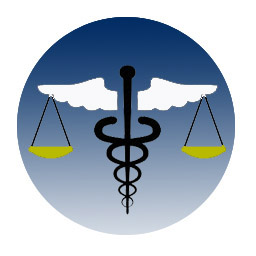
There will be times when you advocate for a person where you must have a basic understanding of their rights under the law. An advocate is not an attorney, but knowing the rights of the people you work with will aid you in determining whether or not legal consultation is needed in their situation. Under no circumstances should anyone other than a lawyer offer legal advice to anyone. However, you can inform the person you are working with that you believe their rights may have been violated and encourage them to seek more information from a legal professional.
Patient Rights & Laws – Connecticut
You are entitled to be treated in a humane and dignified way at all times, with full respect to:
Personal Dignity – Right to Privacy – Right to Personal Property – Civil Rights
You have the right be free from physical or mental abuse or harm. You have the right to a written treatment plan developed with your input and suited to your own personal needs, goals and aspirations. You should be informed of your rights by the institution, agency or program. In addition, a list of your rights must be posted on each ward of a hospital.
Direct Link to entire document: https://portal.ct.gov/-/media/DMHAS/Publications/patientrightsengpdf.pdf?la=en
Sec. 17a-505. (Formerly Sec. 17-186). Escort of female patients to hospital.
Sec. 17a-507. (Formerly Sec. 17-187a). Admission to general hospital having psychiatric facilities.
Sec. 17a-508. (Formerly Sec. 17-188). Commitment after expiration of specified period.
Sec. 17a-510. (Formerly Sec. 17-192). Release or transfer; procedure.
Sec. 17a-511. (Formerly Sec. 17-193). Transfer of patients by agreement.
How to Report Abuse or Neglect in Connecticut
Notice: Disability Rights Connecticut (DRCT) is not a protective services agency.
By contacting DRCT, you are NOT fulfilling any mandated reporting requirements.
To report the abuse or neglect of a child under the age of 18:
Contact the Department of Children and Families (DCF): 1-800-842-2288
To report the abuse or neglect of a person with an Intellectual Disability between the ages of 18-59
who participates or lives in programs funded or licensed by the Department of Developmental
Services (DDS) and who receives support or services from DDS:
Contact the Abuse Investigation Division: 1-844-878-8923
(After Hours Emergency number): 1-844-612-4221
To report abuse or neglect of a person aged 60 or older:
Contact Protective Services for the Elderly: 1-888-385-4225
*Unfortunately, there are no protective services in the state of Connecticut for individuals between the
ages of 18-59 who do not have an intellectual disability. You may choose to contact your local police
department.
To report abuse or neglect of a person by a home health care worker and/or agency:
The State Department of Public Health provides a free hotline for 1-800-828-9769
consumer complaints involving Home Health Care Agencies.
To file a written complaint or to get information:
State Department of Public Health – Div. of Health Systems Regulation
410 Capitol Ave MS#12, HSR PO BOX 340308, Hartford, CT 06134-0308.
To report abuse or neglect of a person living in a nursing home, residential care facility or assisted
living community: Contact the Long Term Care Ombudsman’s Office: 1-866-388-1888
1-860-424-5200
To report the misuse of Social Security disability benefits by a representative payee:
Contact the Office of the Inspector General: 1-800-269-0271

75 Charter Oak Avenue, Suite 1-101, Hartford, CT 06106
860-297-4300
| www.DisRightsCT.org | info@disrightsct.org
Service Animal Defined – State of Connecticut, Office of Legislative Research
Service Dogs and the Law – State of Connecticut, Office of Legislative Research
Patient Rights & Laws – National
Americans with Disabilities Act (ADA) – The ADA is a civil rights law that prohibits discrimination against individuals with disabilities in all areas of public life, including jobs, schools, transportation, and all public and private places that are open to the general public.
Americans with Disabilities Act (ADA) – Title I – Employment
Americans with Disabilities Act (ADA) – Title II – State and Local Governments
Americans with Disabilities Act (ADA) – Title III – Public Accommodations and Commercial Facilities
Family and Medical Leave Act – U.S. Department of Labor:The FMLA entitles eligible employees of covered employers to take unpaid, job-protected leave for specified family and medical reasons with continuation of group health insurance coverage under the same terms and conditions as if the employee had not taken leave.
Using the FMLA for Rehab – in the United States, only about one in ten people in need of rehab actually receive treatment. One of the main concerns that prevent people from getting the help they need is the concern of losing their jobs. Addiction is a serious medical issue and is therefore covered by FMLA and it’s unfortunate that not a lot of people are aware of this. This resource was shared with us by a Community Outreach Specialist with AddictionResource.net
The guide can be found at: www.addictionresource.
Fair Housing Act – U.S. Department of Housing and Urban Development (HUD)
Service Animal Requirements – U.S. Department of Justice
Frequently Asked Questions about Service Animals and the ADA – U.S. Department of Justice
Service Animals (Including Emotional Support Animals) – U.S. Department of Transpertation
Animal Welfare Act – United States Department of Agriculture
Americans with Disabilities Act – State and Local Governments (Title II)
Americans with Disabilities Act – Public Accommodations and Commercial Facilities (Title III)
Assistance Animals – Fair Housing Act – U.S. Department of Housing and Urban Development (HUD)
Patient Rights Advocacy Groups
Protection & Advocacy for Individuals with Mental Illness (PAIMI) Disability Rights Connecticut Advisory Council: The PAIMI Council comprises of people with mental illness, their family members and others who have experience advocating for or serving people with mental illness.
Disability Rights Connecticut, Inc. (“DRCT”), a new independent, nonprofit organization established to be the successor entity to Connecticut’s Office of Protection and Advocacy for Persons with Disabilities which was abolished by Connecticut law as of June 30, 2017. We are a statewide organization largely funded by federal entities and authorized by the Developmental Disabilities Assistance and Bill of Rights Act, Rehabilitation Act and Social Security Act. DRCT opened its doors on July 1, 2017 and is hoping to hear from you!
Location: Hartford, CT
Protection and Advocacy for Individuals with Mental Illness (PAIMI): An official website of the United States government. PAIMI is administered by the Substance Abuse and Mental Health Services Administration (SAMHSA) and the Center for Mental Health Services (CMHS).






